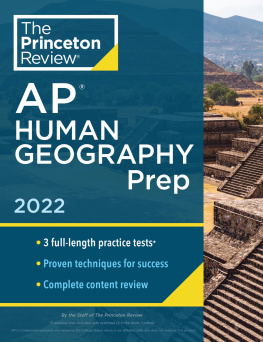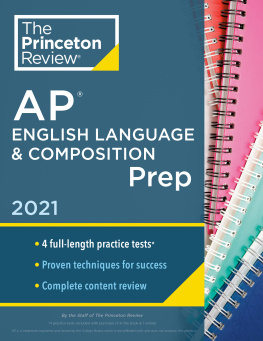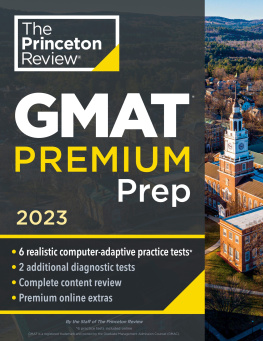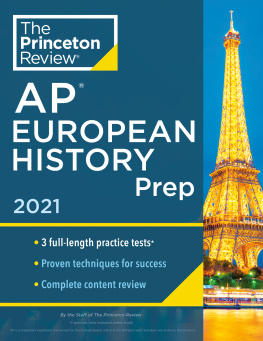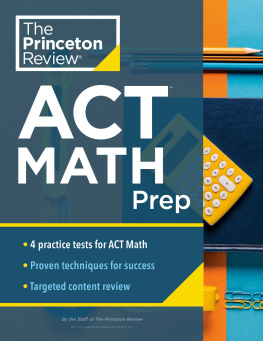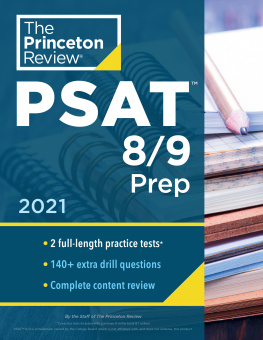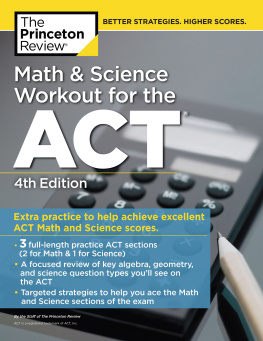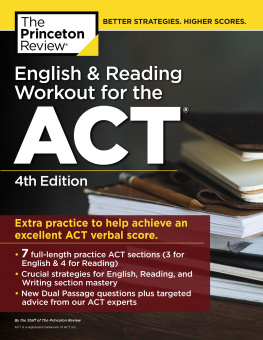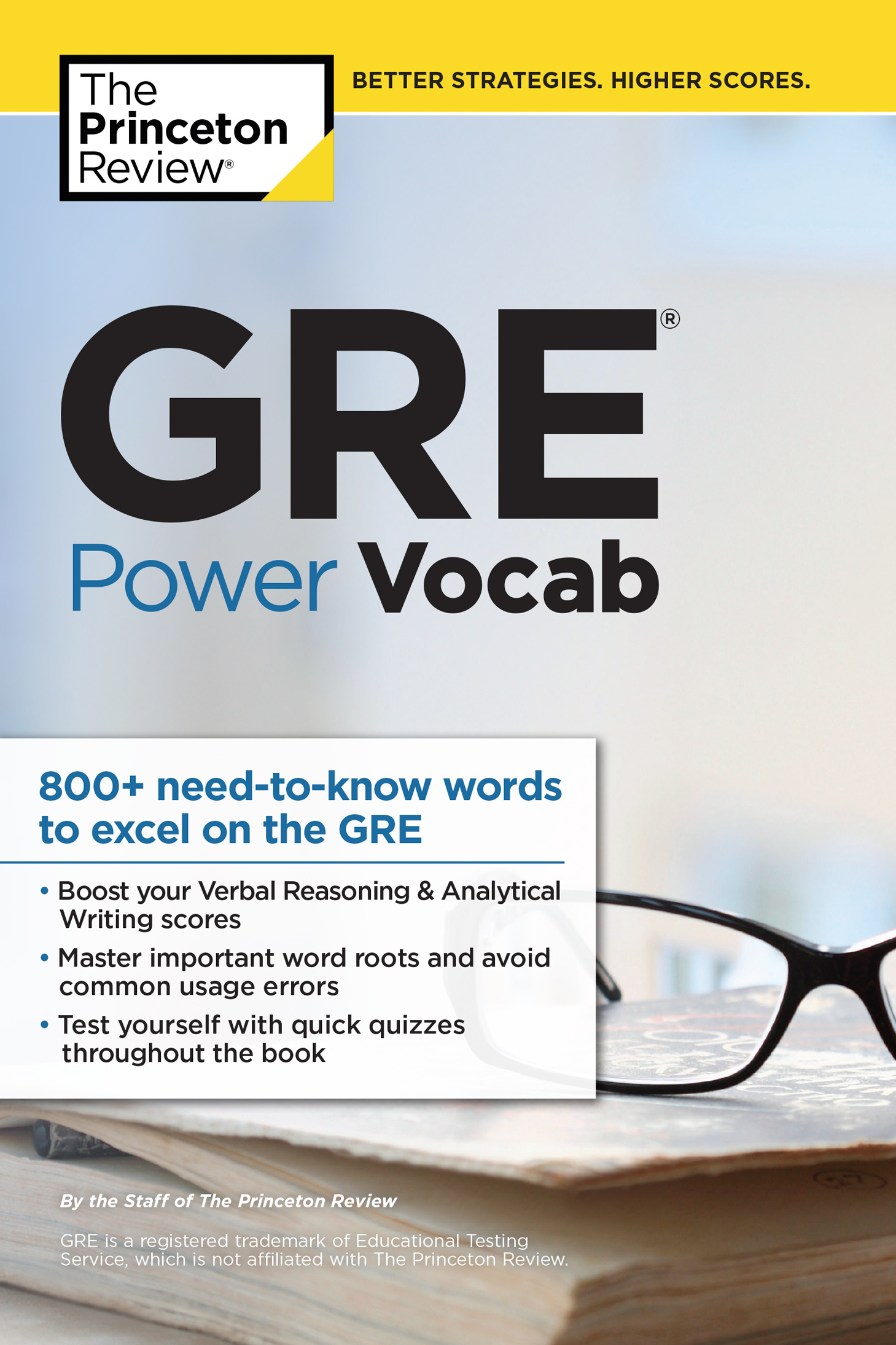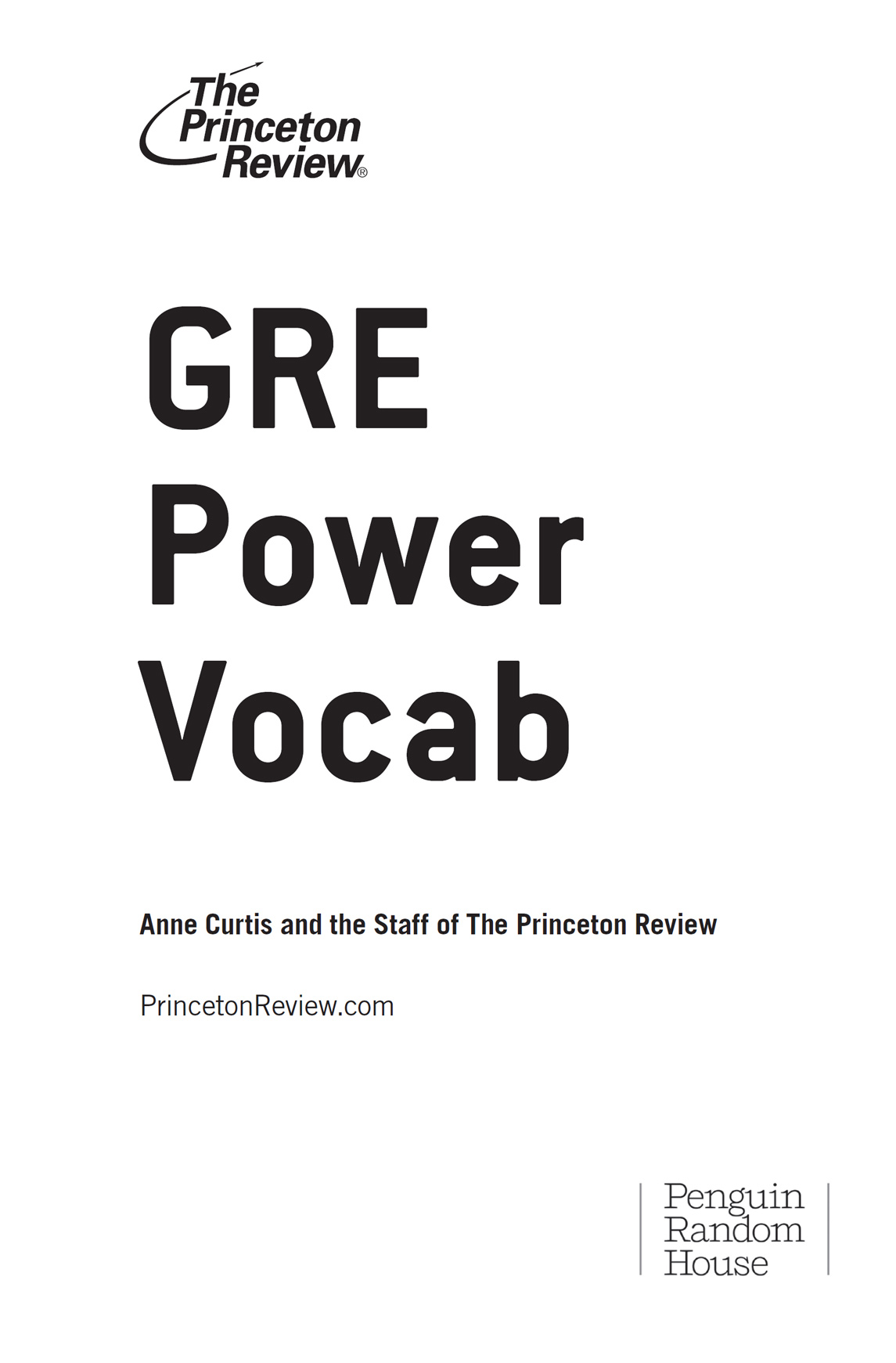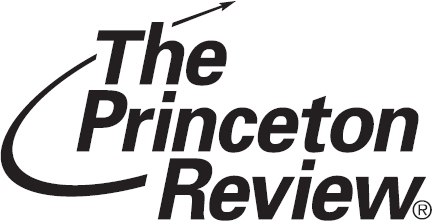

The Princeton Review
24 Prime Parkway, Suite 201
Natick, MA 01760
E-mail:
Editorial
Rob Franek, Senior VP, Publisher
Casey Cornelius, VP Content Development
Mary Beth Garrick, Director of Production
Selena Coppock, Managing Editor
Calvin Cato, Editor
Colleen Day, Editor
Aaron Riccio, Editor
Meave Shelton, Editor
Orion McBean, Editorial Assistant
Random House Publishing Team
Tom Russell, Publisher
Alison Stoltzfus, Publishing Manager
Melinda Ackell, Associate Managing Editor
Ellen Reed, Production Manager
Kristin Lindner, Production Supervisor
Andrea Lau, Designer
Copyright 2015 by TPR Education IP Holdings, LLC. All rights reserved.
Cover art Aleks/Alamy
Published in the United States by Penguin Random House LLC, New York, and in Canada by Random House of Canada, a division of Penguin Random House Ltd., Toronto.
eBook ISBN: 978-1-101-88178-1
Trade Paperback ISBN: 978-1-101-88176-7
GRE is a registered trademark of Educational Testing Services, which does not sponsor or endorse this product.
The Princeton Review is not affiliated with Princeton University.
Some of the content in GRE Power Vocab has previously appeared in Word Smart for the GRE, published as a trade paperback by Random House in 2007.
Editor: Aaron Riccio
Production Editor: Emily Epstein White
Production Artist: Deborah A. Silvestrini
v3.1
Acknowledgments
Thanks to Kyle Fox and Nicole Pirnie for their hard work and attention to detail on this project.
Special thanks to Adam Robinson, who conceived of and perfected the Joe Bloggs approach to standardized tests and many of the other successful techniques used by The Princeton Review.
Contents
Introduction
Welcome to GRE Power Vocab
This book is designed to help you learn commonly tested vocabulary words found on the GRE. The goal of Power Vocab is to familiarize you with some of the essential vocabulary on the GRE and teach you effective strategies to learn these, and other, words.
The GRE is full of interesting but tough vocabulary that some students may be unprepared for. To amend that, GRE Power Vocab contains terms and quizzes to help you learn and remember frequently tested words so you can optimize your score. Youll even get a chance to practice some of these words in the context of real GRE questions. Get ready to learn some vocabulary!
How This Book Is Organized
This book includes our GRE Hit Parade, comprised of the words most frequently tested on the exam, as well as other words that are likely to show up and that often give students problems. Some of these are words that seem familiar, but for which many people dont know the exact definition or proper usage. Others are words whose primary definitions are easy, but which have less common secondary definitions. Unsurprisingly, the folks who write the GRE like to try to trick you with those secondary definitions. (They wouldnt want to make it too easy, right?) For example, the word pedestrian, which most of us think of as the guy walking across the street, will mean commonplace or trite if it is used on the GRE. Weve noted these secondary definitions in the master list in , so keep an eye out for them, paying particular attention to their parts of speech.
In that will give you a sense of your starting pointhow familiar you are with the level of vocabulary tested on the GRE.
The core of GRE Power Vocab is the list of words in and look up the words they missed. Pick the approach that works best for you.
.
Once youve got all of those GRE vocabulary words under your belt (or if you just want a break from studying them), check out . There, youll find handy, subject-specific glossaries that will help you hold your own in conversationno matter what the topic at hand might be!
GRE Power Vocab will help you build your vocabulary, which will in turn help you improve your performance on the GRE and amaze and impress your friends. That is, it will do all of these wonderful things if you use it. You shouldnt stop there, though. Once youve mastered the words in this book, keep going. Pay attention to the words you encounter around you. Get a good dictionary and use it. Read material that challenges your vocabulary. Language is an amazing tool. The more you learn about it, the better youll be able to use it.
Our Pronunciation Key
Instead of using a pronunciation key like those found in most dictionaries, weve decided to use a simplified method. Our key is based on consistent phonetic sounds, so you dont have to memorize it. Still, it would be a good idea to take a few minutes now and familiarize yourself with the following table. (Pay close attention to how the e and the i are used.)
| The letter(s) | is (are) pronunciated like the letter(s) | in the word(s) |
| a | a | bat, can |
| ah | o | con, on |
| aw | aw | paw, straw |
| ay | a | skate, rake |
| e | e | stem, hem, err |
| ee | ea | steam, clean |
| i | i | rim, chin, hint |
| ing | ing | sing, ring |
| oh | o | row, tow |
| oo | oo | room, boom |
| ow | ow | cow, brow |
| oy | oy | boy, toy |
| u, uh | u | run, bun |
| y (ye, eye) | i | climb, time |
| ch | ch | chair, chin |
| f | f, ph | film, phony |
| g | g | go, goon |
| j | j | join, jungle |
| k | c | cool, cat |
| s | s | solid, wisp |
| sh | sh | shoe, wish |
| z | z | zoo, razor |
| zh | s | measure |
| uh | a | abridge |
All other consonants are pronounced as you would expect. Capitalized letters are accented.
The Princeton Review Approach
The philosophy behind The Princeton Review is simple: We teach exactly what students need to know, and we make our courses smart, efficient, and fun. We were founded in the early 1980s, and just a few years later, we grew to have the largest SAT course in the country. Our success is indisputable. Were proud to compare our results with those of any preparation course in the nation. In addition, our first book, Cracking the SAT, was the first of its kind to appear on the New York Times bestseller list.
Our innovative method of teaching vocabulary is responsible for much of our success. Some of the questions on standardized tests are really vocabulary questions, such as the Vocabulary in Context questions in Reading passages on the SAT or the ACT. To score high on these tests, students need to know the right words.


